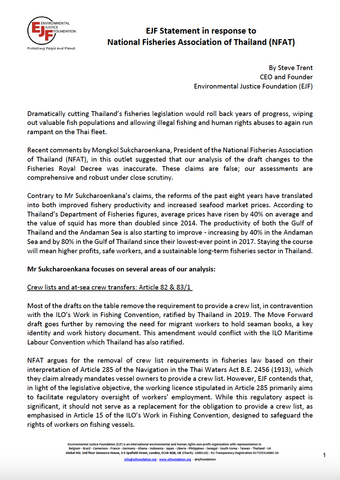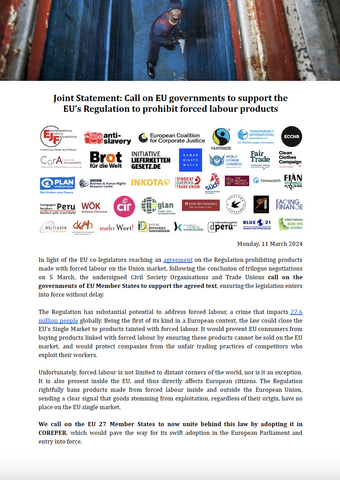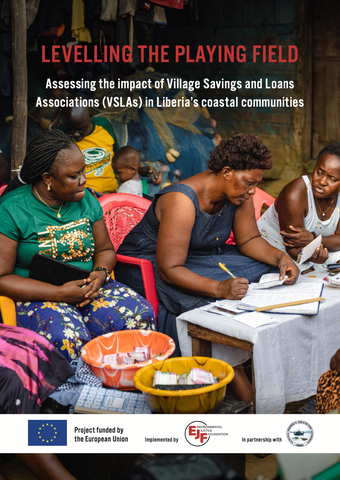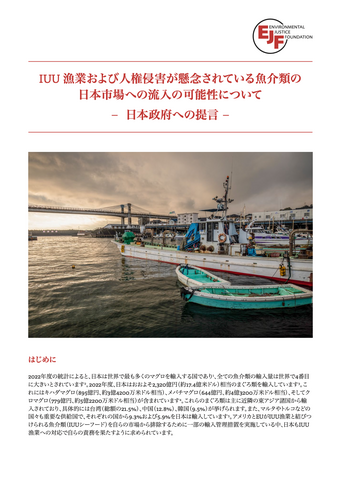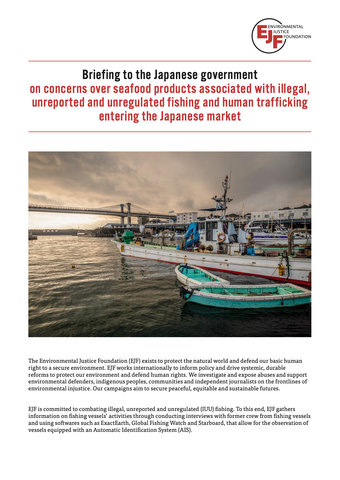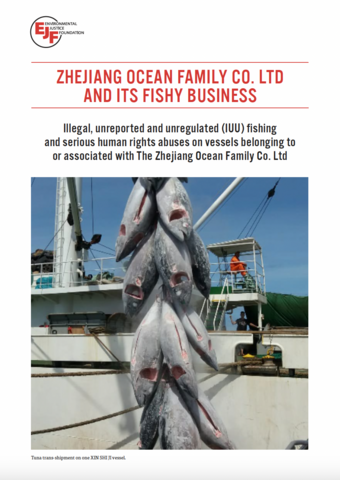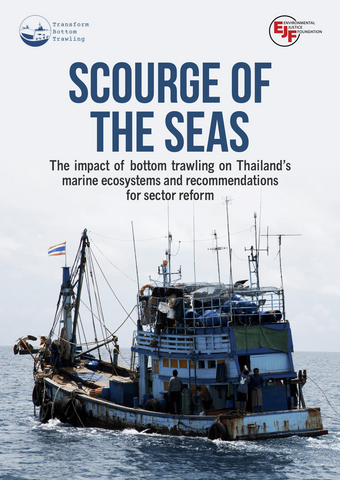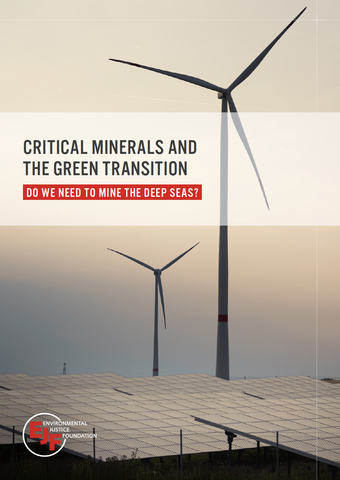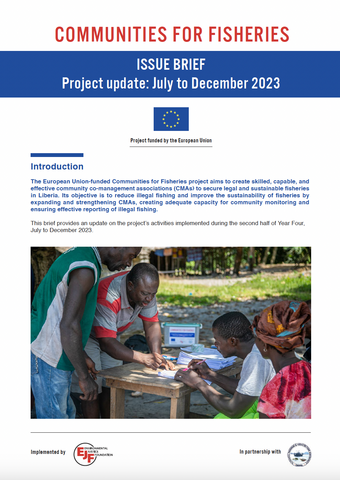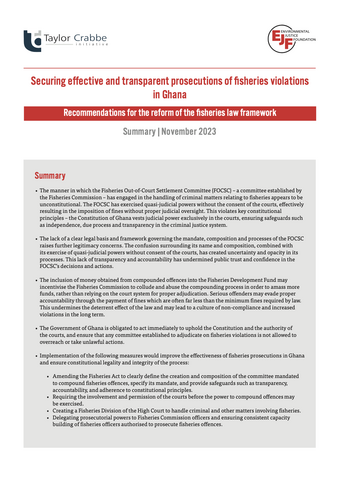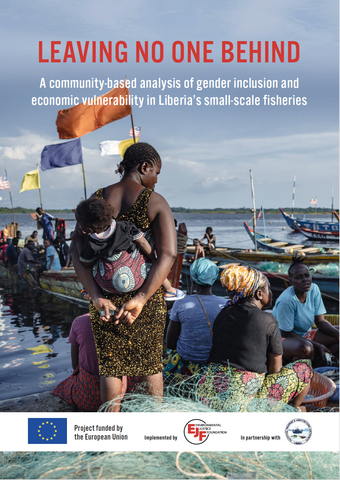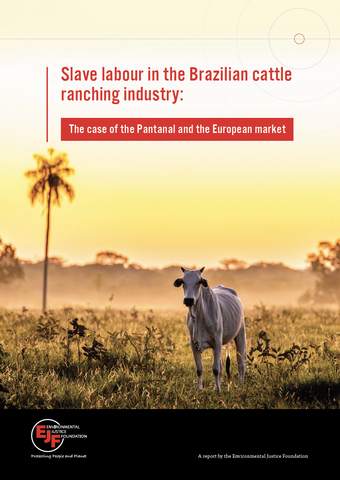EJF Statement in response to the National Fisheries Association of Thailand (NFAT): The National Association of Thai Fisheries, a lobby group for the Thai fishing industry, recently published several claims about the possible roll-back of fisheries legislation in Thailand. This document summarises our responses.
Joint Statement: Call on EU governments to support the EU’s Regulation to prohibit forced labour products: 37 civil society organisations and trade unions from across Europe and beyond today call upon EU Member States to back the inter-institutional agreement reached earlier in March on the Regulation to prohibit products made from forced labour from entering the EU’s Single Market, ensuring new rules enter into force without delay.
Levelling the playing field: Assessing the impact of Village Savings and Loans Associations (VSLAs) in Liberia’s coastal communities: Women play an integral role in Liberia’s small-scale fisheries (SSF). However, the contribution women make to the sector is threatened by challenges that undermine their livelihood opportunities and limit their active participation in fisheries decision-making processes. The Village Savings and Loans Association (VSLA) scheme seeks to address these challenges and increase women’s participation in the governance and management of Liberia’s SSF sector. This report presents the findings of an evaluation of the impact of these VSLAs in their respective communities over a period of one year
Briefing to the Japanese government on concerns over seafood products associated with illegal, unreported and unregulated fishing and human trafficking entering the Japanese market: This briefing follows careful reviews of the current seafood import control system in Japan. It identifies five major legislative loopholes that should be addressed urgently – these loopholes are insufficient coverage of species, negligence in considering human rights, a lack of transparency, an absence of traceability and insufficient penalties when infractions are detected.
Zhejiang Ocean Family Co Ltd and its fishy business: The Zhejiang Ocean Family Co., Ltd. (大洋世家(浙江)股份公司 / ZOF) is a leading fishery company in Chinese and global seafood supply chains. This investigation found that 12 vessels owned or chartered by ZOF or a ZOF subsidiary were systematically engaged in different forms of IUU fishing such as shark finning, intentionally killing cetaceans. Vessels were also implicated in a number of human rights abuses including physical abuse, salary deductions, human trafficking and forced labour.
Communities for Fisheries project update - July-December 2023: The EU-funded Communities for Fisheries project aims to create skilled, capable and effective community co-management associations (CMAs) to secure legal and sustainable fisheries in Liberia. This brief summarises the progress made under the project from July to December of 2023.
Securing effective and transparent prosecutions of fisheries violations in Ghana: Recommendations for the reform of the fisheries law framework: This briefing analyses the key gaps and weaknesses in Ghana’s current prosecution system for fisheries violations, both in terms of the legal framework and in terms of practical implementation, and provides recommendations for addressing these issues, considering the ongoing reform of the national fisheries law framework.
Leaving No One Behind: A community-based analysis of gender inclusion and economic vulnerability in Liberia’s small-scale fisheries: This report documents gender issues in the fisheries sector in Liberia and reveals that strategies to advance women's status in small-scale fisheries are still a key development issue. It also shows that marginalised and economically vulnerable groups in Liberia's fishing communities are being excluded from crucial decision-making processes.
Slave labour in the Brazilian cattle ranching industry: the case of the Pantanal and the European market: Slave labour is prevalent in Brazil’s cattle ranching industry. This report investigates slavery on ranches in the Pantanal wetland, including some linked to JBS, the world’s largest meat producer.
